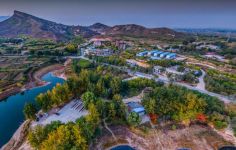用英语介绍端午节
端午节(Dragon Boat Festival)为每年农历五月初五,又称端阳节、午日节、五月节等。“端午节”为中国国家法定节假日之一,并已被列入世界非物质文化遗产名录。端午节起源于中国,最初是中国人民祛病防疫的节日,吴越之地春秋之前有在农历五月初五以龙舟竞渡形式举行部落图腾祭祀的习俗;后因诗人屈原在这一天死去,便成了中国人民纪念屈原的传统节日;部分地区也有纪念伍子胥、曹娥等说法。近年来,有很多外国人也跟着过“中国节”,那么如何向他们介绍端午节呢?下面是由小编整理的如何用英语介绍端午节,希望大家喜欢!

The Festival 节日概括
The Dragon Boat Festival, also known as Duanwu Festival, occurs on the 5th day of the 5th month of the traditional lunar calendar. The exact date varies from year to year on the Gregorian calendar. In 20xx, it occurred on June 2; in 20xx, it occurred on June 20, and in 20xx, it falls on June 9. The festival was long marked as a cultural festival in China, the government, however, did not officially recognize Duanwu as a public holiday until 20xx.
lunar calendar 中国传统的农历
Gregorian calendar 格里高里历, 所谓的公历
Vary 变化 v.
public holiday国定假期,法定假期,
也可以称statutory holiday
The focus of most celebrations involves eating zongzi (sticky rice/glutinous rice wrapped in bamboo leaves), drinking realgar wine, and racing dragon sun is considered to be at its strongest around the time of summer solstice.
bamboo leaves 竹叶
realgar wine 雄黄酒
summer solstice 夏至
Zongzi, is a traditional Chinese food, made of glutinous/sticky rice stuffed with different fillings and wrapped in bamboo, reed, or other large flat leaves. They are cooked by steaming or boiling. In the Western world, they are also known as rice dumplings, or sticky rice dumplings.
糯米的英文:glutinous rice or sticky rice
steam 蒸, boil 煮
fillings 馅
bamboo leaves 竹叶
Zongzi, 粽子的拼音,牛津词典收录单词。但是如果你担心外国朋友听不懂,你也可以说rice dumpling或者sticky rice dumpling, 或者 sticky rice/glutinous rice wrapped in bamboo leaves.
The Name 节日名称
The official English name for the holiday, "Dragon Boat Festival," directly translates into two alternative Chinese names for the holiday, Lóngchuánjié and Lóngzhōujié. Among Malaysian, Singaporean people, the festival is also known as the "Fifth Month Festival," the "Fifth Day Festival," and the "Dumpling Festival." In Indonesian, the festival is known as "Peh Cun", which is derived from the Hokkien phrase(扒船).
端午节的官方英文翻译是Dragon Boat Festival(直译为:龙舟节), 另外流行的称呼还包括:端午的拼音 Duanwu Festival, 和Double Fifth Festival
Malaysian 马来西亚的,
Singaporean 新加坡的
dumpling是一个非常概括的单词,除了表示饺子,汤圆, 包子以外,还可以表示粽子。
The Story 渊源故事
The story best known in modern China holds that the festival commemorates the death of the poet Qu Yuan (c. 340–278 BC) of the ancient state of Chu during the Warring States period of the Zhou Dynasty. A cabinet member of the Chu royal house, Qu Yuan served in high offices.
commemorate: 庆祝, 纪念
Dynasty 朝代, 周朝就可以说Zhou Dynasty, 唐朝可以说Tang Dynasty
Warring States period 战国时期, 春秋时期可以说Spring and Autumn period
However, when the king decided to ally with the increasingly powerful state of Qin, Qu was banished for opposing the alliance and even accused of treason. During his exile, Qu Yuan wrote a great deal of poetry. Twenty-eight years later, Qin captured Ying, the Chu capital. In despair, Qu Yuan committed suicide by drowning himself in the Miluo River.
banish 驱逐
treason 叛国
exile 流放
suicide 自杀, 描述自杀这个动作可以说commit suicide.
It is said that the local people, who admired him, raced out in their boats to save him or at least retrieve his body. This is said to have been the origin of dragon boat races. When his body could not be found, they dropped balls of sticky rice into the river so that the fish would eat them instead of Qu Yuan's body. This is said to be the origin of zongzi.
It is said... 据说
retrieve 取回
origin 起源,渊源
当然除了屈原之外,部分地区也有纪念伍子胥、曹娥等说法。希望今天的分享对你对这一节日的英文表达有帮助。Happy Dragon Boat Festival!

